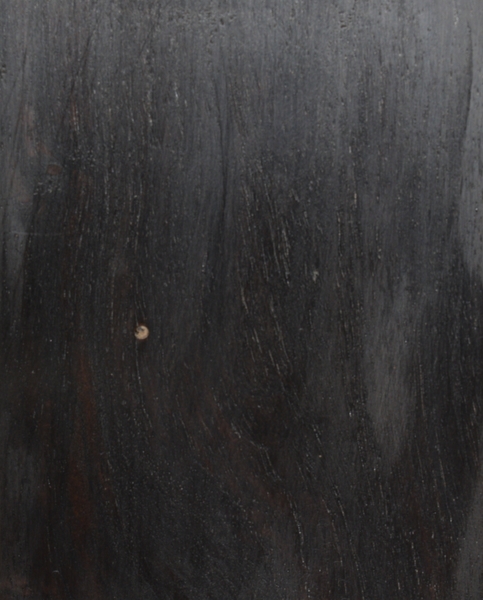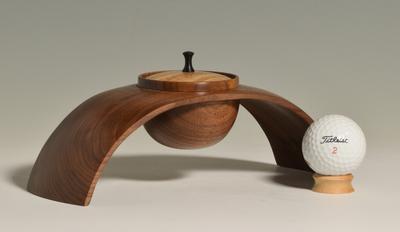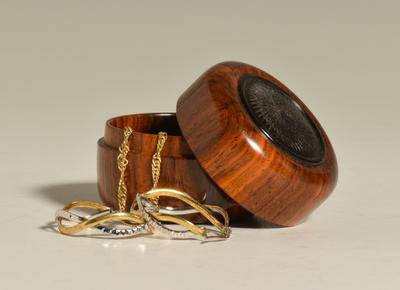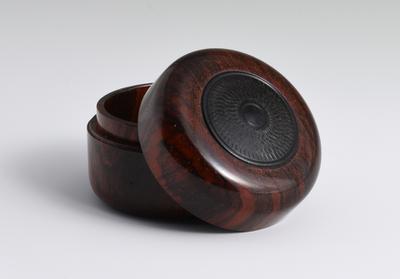African Blackwood (Dalbergia melanoxylon)
Description
Africa blackwood is native to sub-Saharan Africa and is found in dry regions of central and southern Africa, particularly Tanzania and Mozambique. Also known as Mpingo, it is the national tree of Tanzania and will be familiar to most people as it is highly prizes as a tone wood and often used to make woodwind instruments such as clarinets, oboes, and bag pipes. The wood has now been listed by CITES as being near vulnerable and is increasing hard to get, although sources are available for the musical instrument trade and small blocks are often available for turning or inlay and accents.
The Mpingo tree grows slowly under hot dry conditions and is typically, small often little more that a bush. Trees are often only 12' to 45' in height, and rarely straight or defect free. As a result, large, defect free pieces of wood are virtually unheard of.
Although it is often referred to as ebony owing to its appearance, African blackwood is actually a true rosewood as a member of the Dalbergia genus.
The grain tends to be extremely fine and takes detail exceptionally well, which one of the reasons that it used for traditional carvings and statues. It also turns like no other wood and is highly priced for delicate turnings and finials. The wood tends to contain a lot of silica and can be tough on cutting tools which will need to be sharpened often. Unlike ebony, African blackwood is resistant to saliva, making it particularly well suited for woodwind instruments. In many ways, African blackwood machines more like metal than wood, and can take threads directly without the need for adhesives or additional hardware.
Despite it name, blackwood is rarely truly black, but is more often very dark purple to dark brown with darker, almost black streaks. The sapwood is creamy white and is clearly demarcated from the heartwood, providing a stark contrast in those pieces of wood that have both. The wood is very hard, heavy, and almost waxy to the touch. It will polish to a high gloss even without a finish being applied. It is difficult to dry without splitting or cracking and defects are common. For best success, the wood need to be slowly air dried over a relatively long period of time, but once dry is extremely stable in use.
Mpingo is used locally for traditional carvings and chest pieces, and is a favourite tone wood for guitars and banjos.
Also known as:
- Mpingo
- Senegal Ebony
- Mozambique Ebony
For further information see:



